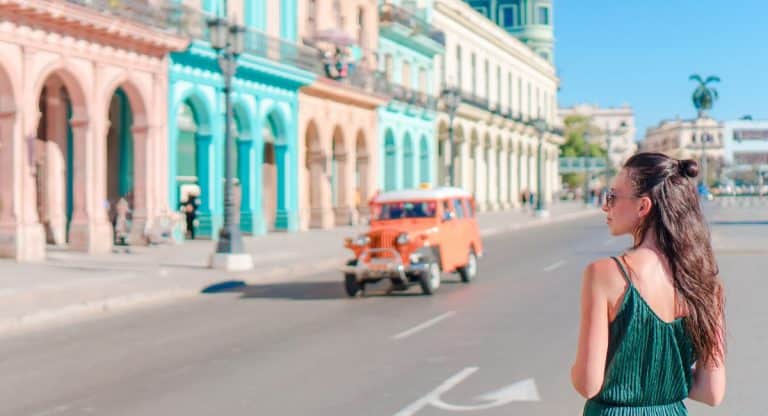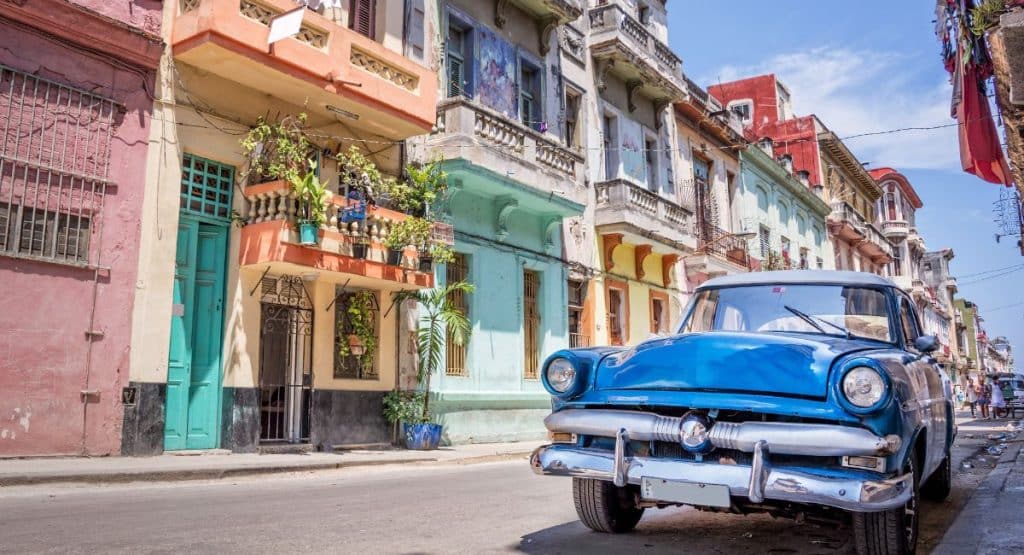Havana is a city that has no comparison anywhere in the world. Filled with colorful colonial Spanish architecture, Caribbean music, classic cars and warm locals who treat you like family, this city invites you to have a unique vacation experience.
Traveling to Havana is relatively safe if common-sense precautions are taken. Petty crimes such as theft or carjacking happen even in tourist areas. So, it’s recommended to be aware of your surroundings at all times.
Alert – International travelers who have set foot in Cuba since January 2021 are no longer eligible for a U.S. Visa Waiver Program (VWP). If planning to visit or transit the U.S. territory, you’ll have to apply for a visa at any of your home country’s U.S. Embassies.
Cities across Cuba are experiencing massive food, medicine, power and fuel shortages. Let’s explore some important considerations to keep in mind if you still decide to visit Havana.
Table of contents
LATEST NEWS from Havana:
March 22 – Starving Cubans Demand Authorities to Provide Food and Electricity
Tired of going through hardships, demonstrators in Santiago de Cuba and nearby towns are calling on the national government to give them food, fuel and electricity.
Back in 2021, thousands of residents took to the streets to protest about food and electricity shortages and rising inflation. Needless to say, the situation has worsened since then.
In recent weeks, fuel and public transportation costs have spiked and blackouts have been out of control. All sports competitions had to be suspended because there’s no fuel to power cars.
Bread, which was already insufficient, is now only given to children and pregnant women.
Taking zero responsibility, Cuba’s president has publicly blamed the U.S. government and the “enemies of the revolution” for attempting to cause national instability.
In an effort to reduce demonstrations, the government has given away some extra rations of rice, milk and sugar.
Permanent solutions are yet to be announced.
Crime Statistics in Havana, Cuba
Although 88% of Cubans live in extreme poverty, the country’s crime level ranks at 31.60 which is considered low.
| Crime level | 31.60 | Low | |
| Crime rise in the last 3 years | 55.02 | Moderate | |
| Worries of home invasion and belongings stolen | 36.06 | Low | |
| Worries of being mugged or robbed | 33.99 | Low | |
| Concerns about getting your car stolen | 29.56 | Low | |
| Concerns about getting things stolen from your car | 37.35 | Low | |
| Worries of being attacked | 25.02 | Low | |
| Worries being insulted | 28.47 | Low | |
| Concerns about being physically attacked due to skin color, ethnic origin, gender or religion | 12.32 | Very Low | |
| Issues with drug addicts and drug dealers | 22.54 | Low | |
| Vandalism and theft | 40.28 | Moderate | |
| Violent crimes such as armed robbery | 26.64 | Low |
Areas to Avoid
Curious about how Cubans “really live,” some travelers venture to El Padrón, Cotorro, El Cerro, Diez de Octubre and Los Sitios. These zones are plagued by illegal businesses and appalling homes.
Needless to say, you must exercise increased caution when visiting such territories. Better yet, stick to tourist neighborhoods like Miramar, Vedado and Siboney.
Current power blackouts are increasing the chances of being pickpocketed.
Travel Advisories
U.S. Travel Advisory
Cuba ranks under travel alert level 2. This means visitors should “exercise increased caution” when in town.
According to the U.S. State Department, travelers can fall victim to petty and violent crime, armed attacks and homicide. Authorities may not be able to assist you if venturing outside Havana.
American travelers to Cuba must apply for a travel license. When doing so, choose a category named “support for the Cuban people,” since there’s not one for regular tourism.
Canada Travel Advisory
Canada urges nationals to “exercise a high degree of caution” when visiting the island due to a lack of food, medicine and gas.
According to this government, moving across the island has become extremely difficult because of the current lack of public transport.
Renting a car is no longer a smart idea because there’s a fuel shortage. Water has also been rationed, even in Havana hotels.
Also, a shortage of food and medications has started to negatively impact tourists.
Safety Tips for Havana, Cuba
Havana is not seeing its best days. If you still decide to take your chances, here are some tips to make your trip smoother.
- Ensure you don’t need a visa or have acquired one before booking your tickets.
- Now more than ever, bring your own medicines.
- This must be insane but also bring your own toilet paper.
- Don’t drink tap water.
- Confirm prices before consuming any products.
- Don’t hand in your credit cards to bar or restaurant workers.
- Only use reputable transportation companies.
- Petty crime is common in tourist areas and at the airport. Be aware of your surroundings.
- Always pack your valuables in a carry-on luggage.
- Watch out for hurricane season which runs from June to November.
- Make sure to fill out this online declaration form.
- Refrain from carrying large amounts of money.
- Travelers are required to purchase medical insurance to enter the country.
- Although foreign currencies are widely accepted,. it’s better to carry some local cash.
- Some streets have two different names. Make sure you know exactly where you’re heading.
- Opt for private instead of state-run businesses. By doing so, you’ll be helping the local population.
- Don’t buy cigars on the streets, they are mostly fake.


